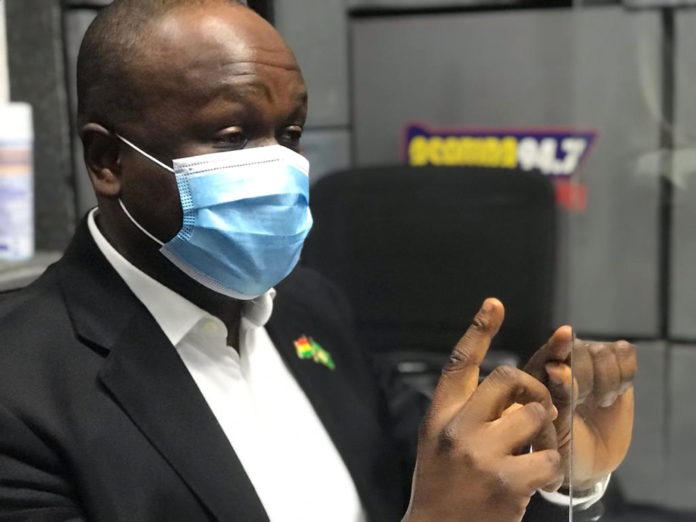
A former Communications Minister under the Mahama administration has cautioned the government against solely depending on the Gavi/WHO instituted Covax vaccines for fighting the Covid-19 pandemic.
Dr Edward Omane Boamah, who is also Health Policy Planning and Financing Expert and a Medical Practitioner, said considering the target set for administrating Covax vaccines to developing countries, it will be very risky for the country to cast its hopes on that mode of receiving vaccines for the deadly Covid-19 pandemic.
“You’ll realise that the entire target of Covax is that by 2021, they should have covered 20% of the entire population of developing countries. So we cannot hinge our faith on Covax,” he said.
This comes after President Nana Akufo-Addo revealed in his 21st update on measures taken to mitigate the impact of Covid-19 that Ghana is expected to receive its first dose of Covid-19 vaccines by June.
This has sparked conversations on how the vaccines should be administered with some citizens including Dr Boamah calling on the government to publish an official rollout plan for the distribution of the vaccines.
According to him, the lack of a clear plan for the vaccine rollout would be detrimental to the efficiency of the immunisation programme the government may want to undertake as citizens who qualify to be inoculated may miss out.
As such, Dr Boamah is cautioning the government against relying on the Covax vaccine. He says government must make a deliberate effort “to purchase, with hard cash, the vaccines.
“If it is just about the philanthropy of the Gavi instituted Covax that we are going to rely on for what is coming in March, then we are in deep trouble,” he said.
He added that regardless of a “tight market”, government can employ diplomacy in securing the vaccines.
“Already about 16 countries pre-purchased before the vaccines were even approved. So the market is getting tighter and tighter. However, this is where diplomacy can take place.
“We have very good ties with some of the countries and some of them also have more than enough (vaccines) to take care of their population. Such engagements can begin,” he said.






